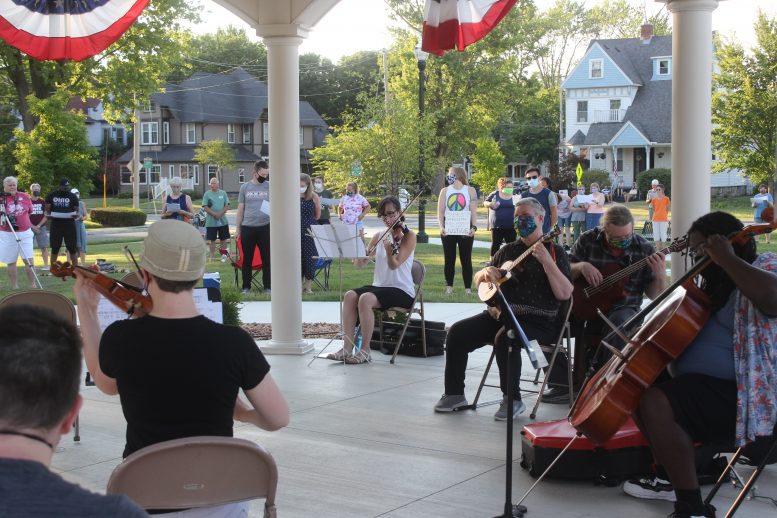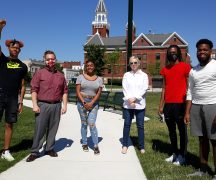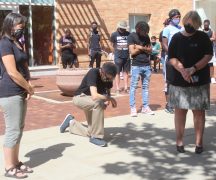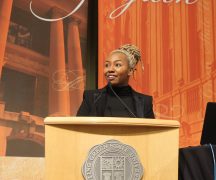By DAVID DUPONT
BG Independent News
Pachebel’s Canon is not the usual soundtrack for a protest. The three centuries old work by Johann Pachebel is more likely heard at weddings.
On Sunday evening, though, the piece was the centerpiece of a violin vigil for Elijah McClain, a 23-year-old Black man who died in August 2019, after a brutal encounter with police in Aurora, Colorado.
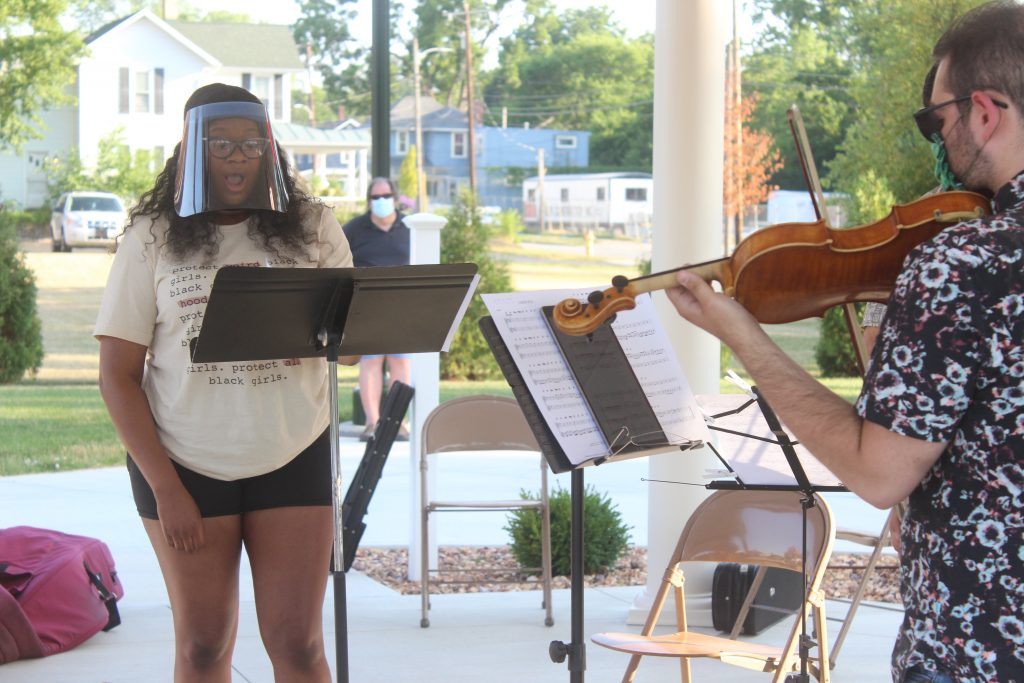
A massage therapist known as being an introvert, he loved music.
Last week, when a violin vigil was held in his memory and to push for investigation into his case, the Aurora police broke up the gathering using pepper spray. The violinists were playing Pachebel’s Canon as the police used pepper spray to disburse the crowd.
That moved Megan Rancier, a lecturer in the BGSU College of Musical Arts, to stage a violin vigil in Bowling Green.
On Sunday about 20 musicians playing violins, ukuleles, banjos, guitar, string bass, and cello, assembled in the gazebo in Wooster Green to remember McClain. His face was displayed on posters around the gazebo. A number of musicians and the approximately 60 people who came to listen wore shirts declaring Black Lives Matter and other social justice statements.
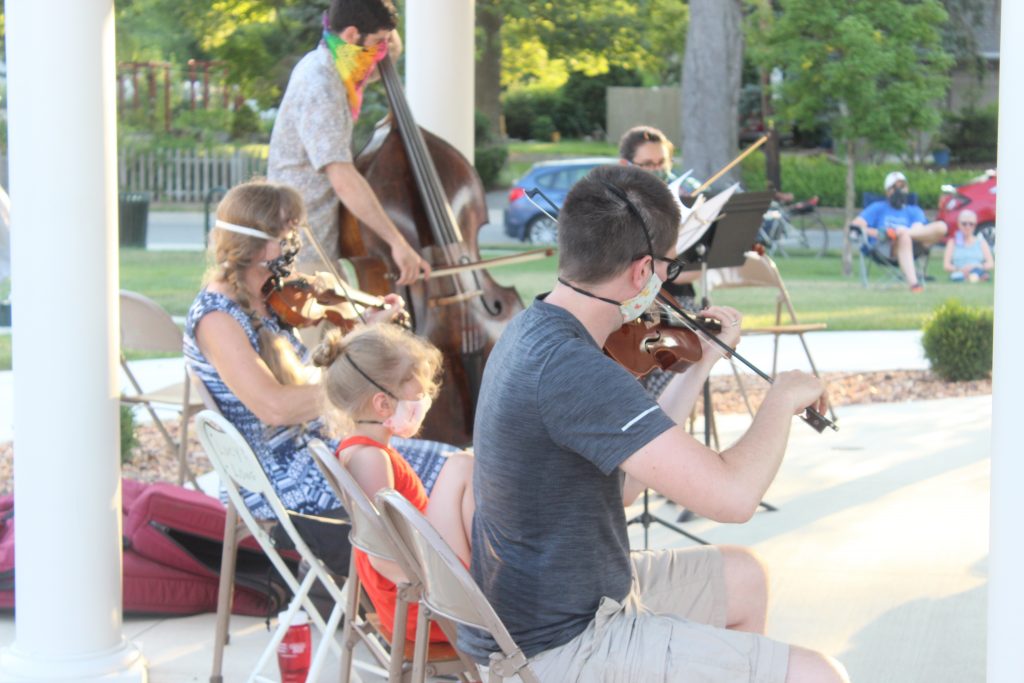
Rancier said she was moved by McClain’s case. Police were called because someone thought he looked suspicious. He was walking down the street, his arms moving. Probably, his friends later said, because he was reacting to the music he was listening to. Three police, who claim their cameras, were knocked off during the struggle forced him to the ground and choked him. When emergency medical technicians arrived, they administered a dose of the sedative ketamine. McClain suffered cardiac arrest, lapsed into a coma, and died seven days later.
The vigil in Bowling Green was staged to express “solidarity with the protestors in Aurora, but also to show our support to the family of Elijah McClain and our opposition to police brutality.”
Anthony King, a local activist, thanked those at the vigil “for standing in solidarity with the African-American community.”
Doing this with music was fitting because music is where McClain found solace and expressed himself.
The program began with Pachebel’s Canon, and continued with performances by several other musicians.
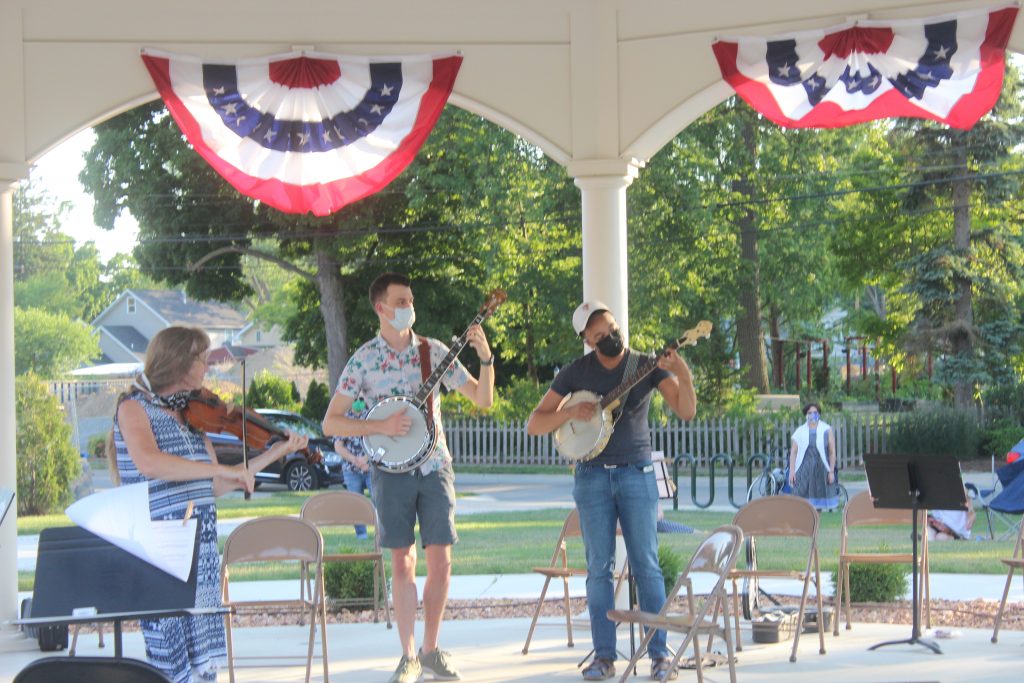
King improvised a lush, meditative piece on keyboard.
Lucy Long played some old-time fiddle pieces. She remarked that in the early 20th century, when Henry Ford was a sponsor of fiddling contests, contestants were forbidden from using any “Negro elements,” such as syncopation, in their performances.
Jhané Perdue sang “For You There Is No Song” by Cleveland-born African American composer Leslie Adams. The work is part of his song cycle based on the poetry of Edna St. Vincent Millay.
The song speaks of the loss of someone whose story told in a shaking voice exists only as tears on the page.
Perdue said she felt this was a fitting tribute to McClain.
She said she loves to share her music with people, especially as a way to promote racial justice.
As an African American, Perdue said she is compelled to lift her voice in protest. “Black people are dying at an astronomical rate from police violence.”
The evening concluded with the strings reconvening in the gazebo and playing as the crowd sang the Black national anthem “Lift Every Voice and Sing,” and ending with “We Shall Overcome.”

